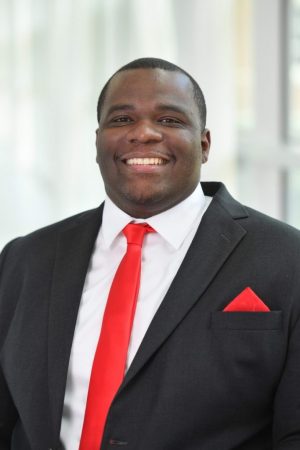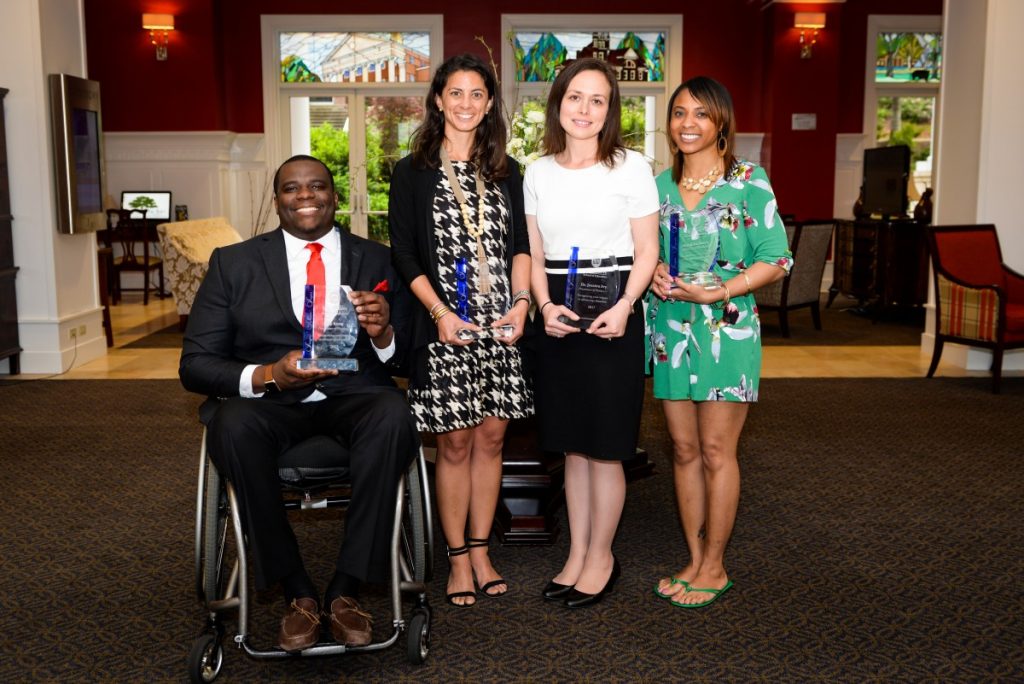 SOE alumnus Jay Levy (BAEd 11) was paralyzed by a car accident during his junior year at Ole Miss, but this didn’t stop him from an exceptional, change agent teacher—a fact he has proven time and time again.
SOE alumnus Jay Levy (BAEd 11) was paralyzed by a car accident during his junior year at Ole Miss, but this didn’t stop him from an exceptional, change agent teacher—a fact he has proven time and time again.
For example, during his first year of teaching at Pisgah High School in Brandon, Mississippi, Levy’s English II class earned the state’s highest test scores and he was named teacher of the year.
Levy is one of our four 2017 Practitioner of Distinction Award winners. We recently sat down with him to speak about his time at Ole Miss, and to learn his advice to future teachers.
Can you share a significant experience that had a profound impact on you when you were a student at Ole Miss?
I would have to go with student teaching. When I think about some of my co-workers who did alternate route programs, they just had to jump right in. My student teaching experience really helped me. I think some teachers who do alternate route programs, don’t get that experience. I was lucky to have a good clinical instructor at Lafayette High School. Some of the same things I saw her do with her students I employed the very next year in my classroom. I felt like I was more prepared.
What advice do you have for future teachers?
Be creative. I try all types of things in my classroom. I use popular songs as one of my techniques. I remember when I was teaching pronoun and antecedent agreement and I used Beyoncé’s song “Irreplaceable” to remind them that all the antecedents in the sentence are found before the subject. The students appreciate it when you try to get on their level. They learn more when they see you are trying to make a vested interest to help make the material relatable to them.
What have you found most enjoyable in your career as an educator so far?
Graduation has been most enjoyable for me. I used to teach students in ninth grade. Seeing students go from ninth grade and later attending their graduation ceremony in 12th grade has been most rewarding. Now that I’m a few of years in, some of my students have begun to graduate college. I think it will be interesting to teach with some of the students I have taught myself.
Did you tell them to go to Ole Miss?
(Laughs) Of course! Absolutely!
Was there a faculty member at Ole Miss that had a huge impact on you?
Dr. Oliphant Ingham in the School of Education. She was the secondary English major professor. I had a lot of classes with her. I use so many of the techniques and strategies that we discussed in class. She is awesome. I can’t say it enough. She definitely impacted me while I was here.
When you had your accident, was there ever a moment when you questioned whether or not you wanted to be a teacher?
Yes. It happened right in the middle of my junior year, so it was right around the time where we were starting to go out to some of the schools to start pre-student teaching shadowing observations. I remember thinking, “Will the students still respond to me the same way being in a wheelchair as they did when I was not in a wheelchair?” What I have found is that they respect me more after I tell them my story and I am very open with them and I let them ask me questions. I always start class that way the first day of school. I tell them my story and about my car accident and I make them promise to always wear their seat belt.
What sort of questions do they usually ask you?
“Can you walk?” Or, “Will you ever be able to walk again?” Or, “How did you do it?” They also say that it must be so hard and they would never be able to do it and they ask how I went on with my life after it. It presents a good teachable moment for me to tell them that life is hard and it will throw curve balls at us, but it’s up to us to make those situations better.
So, you’ve earned a couple of degrees since you graduated from Ole Miss. What are some professional goals you have for yourself within the next few years?
I want to finish my dissertation and my Ph.D. and eventually maybe become a curriculum principal. I’m really into curriculum and instruction and I really want to be involved with helping teachers become better teachers. So I want to be something in between a principal or a curriculum principal or an instructional coach. I just want to do something in educational leadership.
What does it mean to you to be honored with the Practitioner of Distinction Award?
I think it reminds me that hard work does pay off. I’m very blessed. I get students who come up to me all the time or write me letters or find me on Facebook and they share these memories of being in my classroom. I’m really honored that Ole Miss is rewarding all of my hard work that I have put in. I really appreciate it.
Is there anything you can think of that you would like to add?
I just want to tell all future graduates going into education to follow their heart and to inspire their students to be the best they can be.
By Kathleen Murphy and Andrew Abernathy

2017 SOE Practitioners of Distinction.
SaveSave
